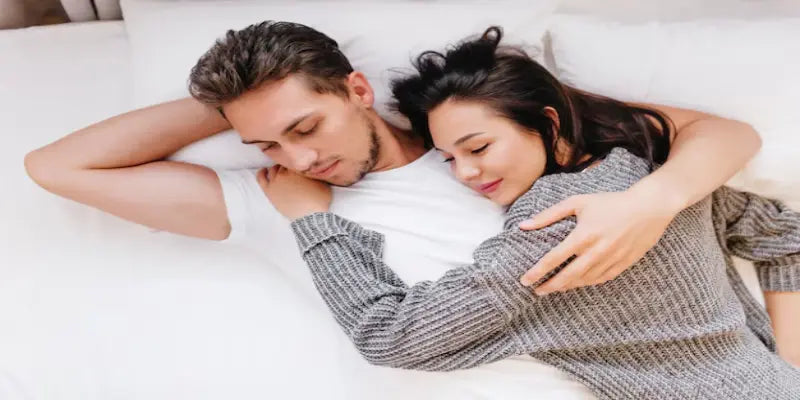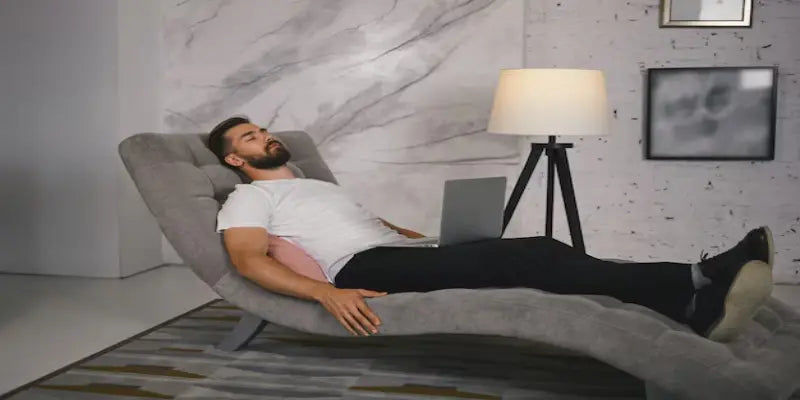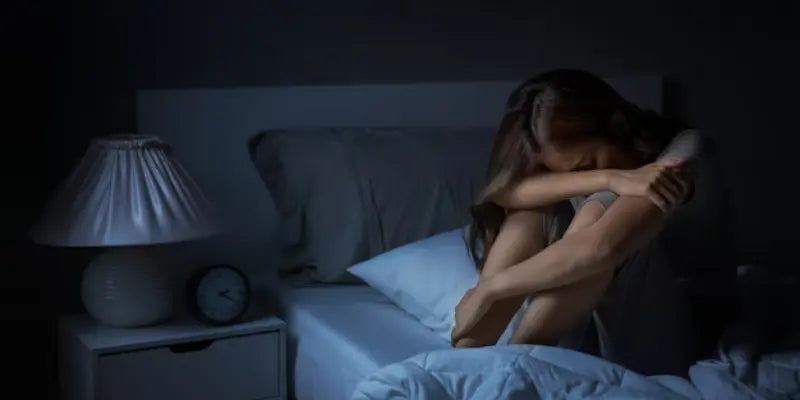
Sleep and Eye Health: How Rest Impacts Vision
If you don't get enough sleep for some time, other people will notice dark circles, swollen eyes, or drooping eyelids. However, a lack of sleep has an impact on more than simply your physical look. Sleep is essential for your health and well-being.
Skipping out on beauty sleep has a negative impact on your mood, motivation, memory, metabolism, and other factors. It has an impact on your eye health as well. In this blog, we'll look at the relationship between sleep and eye health and how healthy sleep affects your vision.
Effect of Lack of Sleep on Eyes
Dry Eyes
You've probably noticed that if you don't get enough sleep, your eyes grow red and scratchy. When you are sleep deprived, your eyes have difficulty producing tears. The absence of lubricant causes the eyes to become dry, red, and irritated. It also raises the risk of eye infections.
Eye Spasms and Twitching
Not getting enough sleep can lead to eye spasms and twitching. This can make it difficult for you to read, concentrate, complete tasks, or even drive safely.
Dark Circles
Dark circles under your eyes are one of the less serious side effects of sleep loss. Your eyes appear swollen and have dark circles under them when you don't get enough sleep.
Eye Infections
Ocular infections can result from dry, irritated eyes, which is another issue. Your immune system is weakened by sleep deprivation, making you more vulnerable to infections.
Glaucoma
Breathing can be affected by chronic sleep deprivation or sleep disorders such as sleep apnea, which lowers oxygen intake during sleep. A deficiency of oxygen in the eyes can negatively impact optic neurons and cause glaucoma. To prevent glaucoma, it is essential to have regular eye exams for symptoms of sleep apnea and to receive the proper therapy.
Ischemic Optic Neuropathy
Ischemic optic neuropathy can occur when there is insufficient blood flow to the eyes during sleeping. Regular sleep deprivation damages visual neurons by impeding vital blood flow. Uncertain vision and excruciating eye pain are among the symptoms.
Blurry Vision
When you have blurry vision, objects may appear out of focus because your eyesight becomes less crisp. This may also be the result of a common condition known as dry eye disease, which is frequently linked to lack of sleep.
Tips to Get More Quality Sleep
If you are having trouble getting enough sleep, there are some sleep habits you can adopt to sleep better and longer. By following the given tips consistently, you can get more quality sleep at night and can have a healthy vision:
Stick to a Routine
Every day, try to go to bed and wake up at the same time. This not only enhances the quality of your sleep but also helps your body adjust its internal schedule.
You shouldn't need an alarm if you're getting enough sleep to wake up naturally. You might need to go to bed earlier if you require an alarm clock. Never, even on the weekends, sleep in. Your symptoms of jet lag will worsen the more your weekend and weekday sleep schedules diverge.
Create a Relaxing Bedtime Routine
When you were a child, your mother would tell you a story and snuggle you into bed every night, which helped you go asleep. Even in adulthood, establishing sleep habits can have a similar effect. Rituals assist the body and mind know when it's time to sleep. Have a glass of warm milk. Take a bath. Alternatively, listen to relaxing music before going to bed.
Make Your Bedroom Comfortable
Keep the room cool, dark, and silent. Exposure to light in the nights may make it difficult to fall asleep. Avoid using light-emitting screens right before bedtime. Consider utilizing room-darkening shades, earplugs, a fan, or other gadgets to create an atmosphere that meets your requirements.
Limit Screen Time Before Bed
Tablets, cellphones, and computers can keep your head wired, making it difficult to completely unwind. The light from these electronic devices can also reduce your body's natural production of melatonin. Try to unplug for at least an hour before going to bed.
Watch What You Eat and Drink
Avoid going to bed hungry or stuffed. Avoid heavy or substantial meals, especially within a few hours of going to bed. Discomfort could keep you awake.
Nicotine, caffeine, and alcohol should also be used with caution. Nicotine and caffeine have long-lasting stimulant effects that can disrupt sleep. And, while alcohol may help you feel drowsy at first, it might disturb sleep later in the night.
Get Regular Exercise
People who exercise regularly fall asleep faster, sleep better, and are less tired during the day. Regular exercise also alleviates the symptoms of insomnia and sleep apnea while increasing the amount of time spent in the deep, restorative stages of sleep.
Stress Management
Try to work out any anxieties or problems you have before going to bed. Write down what's on your mind, then set it aside for tomorrow. Stress management could help Begin with the basics, such as organizing, prioritizing, and delegating chores. Meditation can also reduce anxiety.
Limit Daytime Naps
To sleep well at night, it is critical to exercise caution with naps. If you nap too long or too late in the day, it might disrupt your sleep rhythm and make it difficult to fall asleep when you want to. The greatest time to nap is just after lunch in the early afternoon, and the ideal nap length is about 20 minutes.
Expose Yourself to Natural Light
Light exposure regulates the body's circadian clock. Sunlight has a strong influence, so try to step outside or open your windows or blinds to let in some natural light. Getting some natural light early in the day can assist regulate your circadian cycle.
If you are frequently having difficulties sleeping, consult a doctor or a sleep specialist. They can assist, discover and address any underlying concerns. Following these suggestions will help you develop better sleeping patterns and improve the quality of your sleep over time.
Conclusion
Sleep is essential for maintaining eye health since it gives more benefits than simply recharging you for the next day. The fact that not getting enough sleep can cause a range of eye disorders emphasizes the link between sleep and vision.
These methods can help you get a better night's sleep. A consistent sleep schedule, power naps, a pleasant sleeping environment, and a supportive pillow can all help you sleep faster and better. If you want to wake up feeling refreshed and energized, consider investing in a memory foam pillow. A memory foam pillow, which adjusts its shape while you sleep, can provide comprehensive support for your head, neck, shoulders, and even your back








